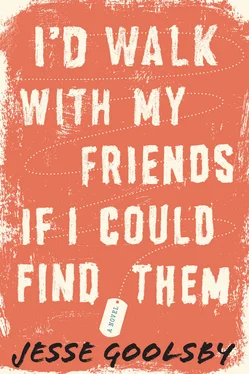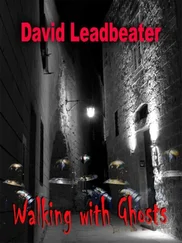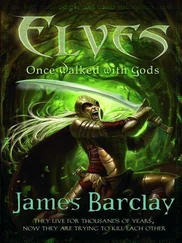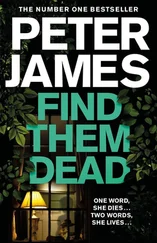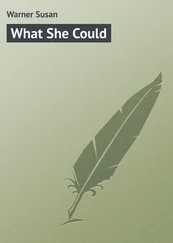Mia moans again, and three people in the row in front of the Torres family turn and smirk-smile. Anna places her hand on Armando’s bouncing leg to soothe him, but his mind floats in a trance, now stuck on the particulars of tarring and feathering. Pine tar? Tar we use for the roads? Hot tar? Pour it on? Why the feathers? Mia fusses louder and Anna whispers, “I’m taking her out” to Armando, but his leg keeps bouncing, his eyes up— How do you get the tar off? Why tar and feather when someone can put a shirt on over it? Unless you do the face. Hot tar on the cheeks. A beard of feathers. Where do you get feathers? Chicken feathers? Who brings the feathers? Of all the choices for pain and humiliation, tar and feathers? His head clears and he peeks over at his family, but there is only Camila, sitting silently, stuffing the eraser end of a pencil up her nose.
On their way home from church Anna balls her fists and eyes the horizon. Armando focuses on the oncoming traffic, trying to push away the thought of one of the cars abruptly turning in to them head-on. He pictures the collision, beautiful and choreographed, all of them in the sluggish lean mid-contact, a crash-test-dummy commercial. He hears “Hello” and “Hey,” and Anna waves her hand at him and brushes her thighs.
Five blocks from home Anna apologizes, says, “I have to ask. Did you kill anyone this time?” She wants to understand what she is dealing with. The children wear headphones in the middle row, watching Shrek 2. Armando thinks of the checkpoint girl, his bucking gun, the bullet that missed everything and saved him. Then, reaching down after the Kabul bomb blast, touching the young girl’s arm, grabbing the limb, pulling, her arm sliding free from her body, him holding her dangling arm by the wrist.
“No,” he says.
She asks if the redeployment program on post helps at all. He opens his mouth but blanks on the answer. They have counselors, sure, but he’s been through the routine before. Everyone wants to get out of there, get home, and deal with it on their own. He has plans to leave the army anyway; no need to open up new files about stuff that they have no clue how to diagnose or treat, if there is even something to diagnose. He sleeps decently enough, and his dreams of a future without bomb-planted streets arrive in comforting color. The rumor is that the VA clinic lines and the wait time for benefits are insane, but he’s not worried about that yet. He still relishes his easy pleasures, how they are more than just pleasures, simple spaces where he can place hope and faith without any wounds: in his Denver Broncos, how they win more than they lose, how Jake Plummer will never get them to the Super Bowl; in Tiger Woods, how he will break out of his current slump any week now; in Green Day’s new American Idiot album, how it plays on repeat during his morning runs.
Armando is realistic. He doesn’t expect blanket immunity from his combat time. While he knows many soldiers who deal with combat seemingly well, who move on after their service to years of success and fulfillment, he’s also familiar with the stories of good men and women, many of them friends, who go sleepless for days, play metal music at 3 A.M., use drugs, experience perpetual sedation. Worse yet are the many others sticking guns in their mouths and pulling the trigger, wrapping belts around their necks and teetering off the chair, the unfathomable pain trapped in those that do, the unfathomable pain left in suicide’s wake.
In comparison he diagnoses himself fine, at least fine enough. He makes love to Anna. He takes the sacrament at church without anguish. He recognizes there are issues with being “fine.” What does it say that he’s not jacked up? Should he be different, jittery? Two deployments and he waits for the consequences of Afghanistan, confused. In an inexplicable way he wants the shakes for a day, an hour. When will he feel the pain of shooting at the checkpoint girl? When will he suffer the guilt of masturbating during the prayer calls? Will his minor yearnings for the amplified voices from the minarets stop? For the Afghan streets’ smell of crap, dust, and rot? Already tiny but manageable itches arise for the chaos that greeted him each morning and made him feel like he could die at any moment, and for other times, when the occasional blood moon out his window convinced him that he would live forever.
Anna’s voice lifts him out of the daydream. She reaches to hold his hand over the center console.
“I want to know how I’m supposed to talk to you.”
Armando hears Anna, but washed once over — a memory speaking to him — and he waits to hear how he’ll reply. He grips the leather-wrapped steering wheel and stares down the blue Toyota truck approaching fast, left tires hugging the double yellow. The truck’s chrome grille sparkles at him.
“I want to know how to talk to you,” Anna says again.
“Be thankful I’m not hurt. I’m not limping. I can play with our children.” He pauses and smiles as they turn onto their street. “And I’ve never been right up here.” He taps his head, already aware of and disappointed by the gesture. Anna goes silent, and he sees her hands squeeze her thighs. They pull into the garage, and Armando lets Anna lift the kids out of the car.
The Torres family settles into the early Sunday afternoon, and he unknots his red tie and unbuttons the top of his dress shirt. He helps feed the girls grilled cheese and remembers that Camila no longer requires a peanut butter dollop.
Anna bought their new house while he was overseas. The stucco rancher feels tight for their family — room walls crowd the beds on both sides. After lunch, the hallway floor creaks as his daughters skip to their rooms.
The girls nap, and Anna asks Armando what he’s thinking about while he relaxes on the couch watching golf (the Tour Championship, the fairy-tale green fairways, Retief Goosen going low). He really wonders how they grow and cut the grass in diamond patterns so perfectly for the golf tournament, recalls that when he used to play the Broadmoor course with his mother the grass was cut the same way, but he can see that Anna wants something more. He notices the hope in her elbowed lean across the laminate counter, in her slightly raised eyebrows, so he tells her that he often contemplates who’s going to win in the end, Allah or God. The sentence comes out a little sarcastic, but he sells the question with eye contact. He expects some ribbing or a frustrated shake of her head, but Anna glides from the kitchen to sit next to him. She turns off the television without asking.
She says that America is blowing it because there are not enough real Christians, that the Muslims have nothing against Christianity, that if Christians actually practiced their faith, were as devout as the Muslims were, most would get along fine.
“Some of the blame is ours,” she says. “America’s. We’re strong in all the wrong ways. We call ourselves Christians, but we’re something else.”
“Muslims can’t even get along with other Muslims. It’s not that easy.”
“I didn’t say it was easy. Anyway, you’re not going back. You’re here. That’s all that matters. And you weren’t thinking about Allah versus God. Talk to me like you care what I think, because I worry about you. I can’t help you if I don’t know anything. And if you want me to leave you alone, just tell me that. But it kills me when you don’t say anything or make stuff up.”
“I don’t want to invent things. If I need something, I’ll take care of it or tell you or both. Assume I’m fine unless I tell you. I’m tired. I feel like I’ve just got home.”
Armando takes in the living room, still new to him, the fifty-inch flat-screen too big for the room. He’s disappointed he opened his mouth about the Allah-God thing. This isn’t where he wanted this afternoon to go. He wants to see if Tiger can catch Goosen at the Tour Championship, wants to bask in a clear, unburdened mind, wants to consider telegenic lawn-mower patterns. He moves Anna’s voice to the background and notices the crown molding where the ceiling and walls meet and follows the line across the wall.
Читать дальше
